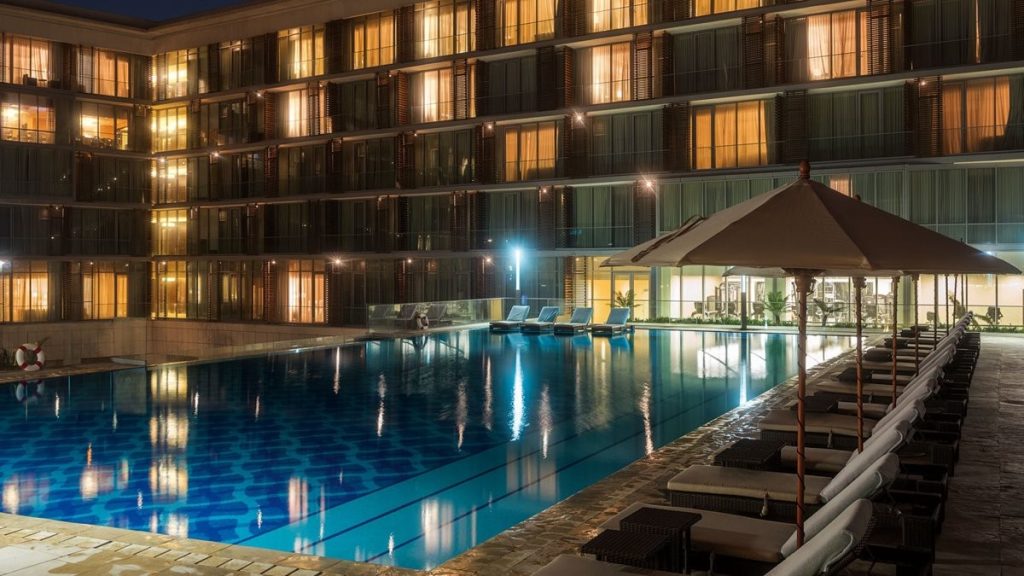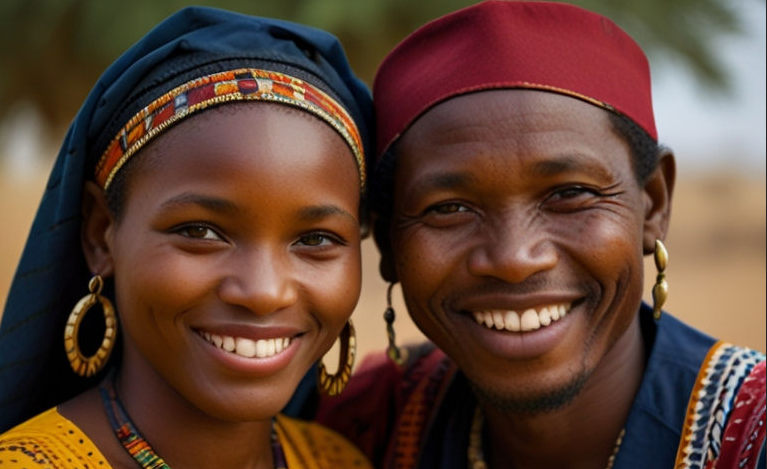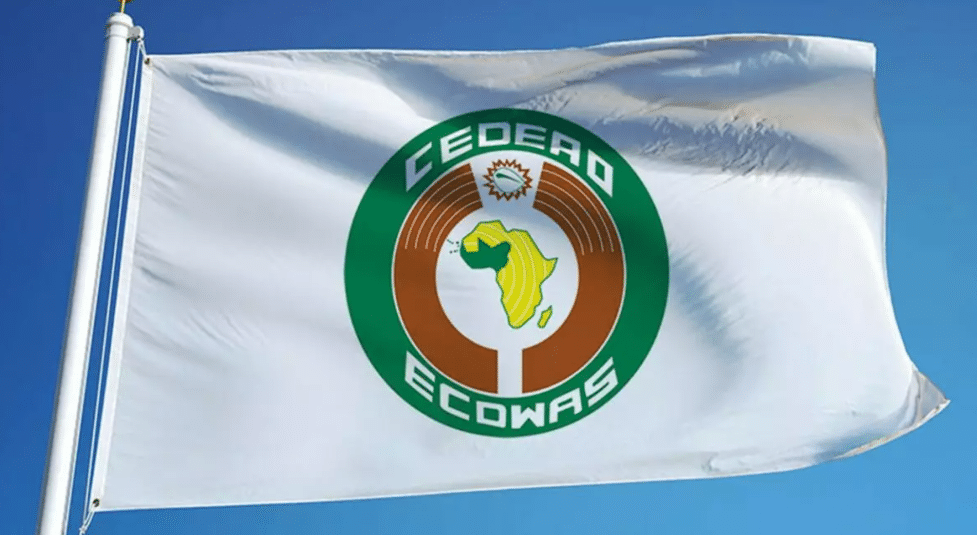In West Africa, marriages are more than just unions between individuals; they serve as essential vessels for preserving and enriching cultural diversity. Understanding the intricacies of West African marriages provides insights into the complex traditions, symbolism, and social dynamics that contribute to the region’s vibrant cultural tapestry.
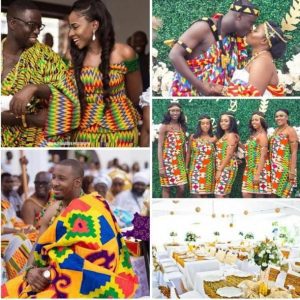
West African Marriages
The Role of Tradition in West African Marriages
Tradition serves as the cornerstone of West African marriages, and it is through these rituals and customs that cultural legacies are passed down from one generation to the next. Each ethnic group within the region has its own unique set of marriage traditions that reflect their history, values, and beliefs. These traditions encompass everything from pre-wedding rituals to post-wedding celebrations, creating a rich tapestry of evolving cultural practices.
The traditional engagement ceremony is one of West African marriages’ most significant pre-wedding rituals. This ceremony, known by different regional names, formally introduces the couple to their families and the community. It involves the exchange of gifts, the blessing of the union by elders, and the performance of traditional dances and songs. This ceremony symbolizes the couple’s union, the merging of two families, and the wider community’s support for marriage.
Another important aspect of West African marriage traditions is the dowry system. In many West African cultures, the groom is expected to present gifts or payments to the bride’s family as a gesture of appreciation and to demonstrate his ability to provide for his future wife. This practice strengthens the bond between the two families and symbolizes the groom’s commitment and responsibility towards his bride.
Modern Influences on West African Marriages
While tradition forms the bedrock of West African marriages, it is vital to acknowledge the impact of modern influences on these unions. Globalization, urbanization, and increased intercultural interactions have led to the emergence of new practices and adaptations within West African marriages. Changes in societal norms, increased educational opportunities, and the influence of Western cultures have shaped the dynamics of these unions, providing new opportunities and challenges for couples across the region.
One notable modern influence on West African marriages is the rise of love marriages. Historically, families often arranged marriages; the primary consideration was compatibility and strengthening social ties. However, with the influence of Western ideals of romance and individual choice, more couples in West Africa are now choosing their partners based on love and personal compatibility. This shift in mindset has brought about a greater emphasis on emotional connection and mutual understanding within marriages.
Additionally, technology and social media have profoundly impacted West African marriages. Couples now have access to a broader range of information and resources, enabling them to explore different relationship dynamics and seek advice on various aspects of married life. Furthermore, social media platforms have provided a space for couples to connect with others, sharing similar experiences and challenges and fostering community and support.
Furthermore, the changing roles of women in West African societies have also influenced the dynamics of marriages. With increased access to education and economic opportunities, women are now more empowered to make decisions within their marriages and assert their independence. This shift has led to a renegotiation of traditional gender roles and a greater emphasis on marriage equality and partnership.
The Cultural Significance of West African Marriages
West African wedding ceremonies are steeped in symbolism that reflects the cultural values and aspirations of the couple and their community. From the attire worn by the bride and groom to the choice of music and dance, every aspect of the ceremony carries profound meaning. Symbolic gestures and rituals strengthen cultural identity and reinforce the bonds between families and communities. By participating in these ceremonies, individuals express their commitment to preserving their heritage and enriching the region’s cultural diversity.
One of the most significant aspects of West African wedding ceremonies is the attire worn by the bride and groom. Traditional garments, such as the vibrant and intricately woven Kente cloth, symbolize the couple’s connection to their ancestral roots. The patterns and colors of the fabric hold deep meaning, representing various aspects of West African culture, such as spirituality, fertility, and prosperity.
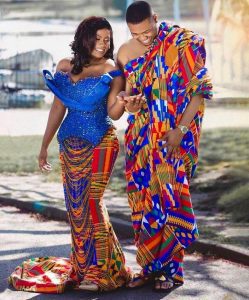
In addition to the attire, the choice of music and dance during West African wedding ceremonies is also highly symbolic. Traditional instruments, such as the djembe and the kora, create a vibrant rhythmic atmosphere, inviting guests to participate in the celebration. These musical performances often tell stories of love, unity, and the importance of community. The energetic dances accompanying the music serve as a form of communication, expressing joy, gratitude, and the community’s shared values.
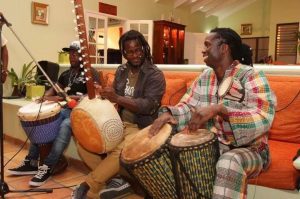
The Impact of Marriage on Social Structures
West African marriages are not just about the union of two individuals; they play a crucial role in shaping community social structures. Marriages serve as a foundation for building alliances between families, tribes, and ethnic groups, fostering social cohesion and collaboration. These unions strengthen intergenerational ties and provide the framework for transmitting cultural knowledge and values, ensuring the continuity of cultural diversity in West Africa.
Within West African communities, marriage is seen as a way to strengthen familial bonds and create support networks. The union of two individuals extends beyond their immediate families and has a ripple effect on the larger community. Through marriage, families come together, sharing resources, knowledge, and experiences. This interconnectedness creates a sense of belonging and solidarity, which is essential for the overall well-being and development of the community.
Furthermore, West African marriages often involve elaborate ceremonies and celebrations that unite the entire community. These events allow people to connect, celebrate, and reinforce their shared cultural values. The festivities include not only the immediate families of the couple but also extended relatives, friends, and even members of neighboring communities. The collective participation in these ceremonies strengthens social bonds and fosters a sense of unity and belonging.
How West African Marriages Contribute to Cultural Diversity
The Interplay of Different Ethnic Groups in Marriage
West Africa has many diverse ethnic groups, each with its language, customs, and traditions. Marriages between individuals from different ethnic backgrounds drive cultural exchange and cross-pollination. These unions create opportunities for the blending and sharing of traditions, resulting in the emergence of unique hybrid cultural practices that contribute to the region’s cultural diversity.
The Influence of West African Marriages on Global Culture
West African marriages have shaped cultural diversity within the region and left an indelible mark on global culture. The music, fashion, and art associated with West African weddings have gained international recognition and become part of popular culture worldwide. From the vibrant colors of traditional attire to the infectious rhythms of Afrobeat music, West African marriages continue to captivate and inspire people from diverse backgrounds, fostering cross-cultural appreciation and understanding.
Challenges and Opportunities in West African Marriages
Navigating Cultural Differences in Inter-ethnic Marriages
Inter-ethnic marriages in West Africa present both challenges and opportunities for couples. Balancing the preservation of individual cultural identities with the need for compromise and integration can be complex. Navigating cultural differences requires open-mindedness, empathy, and a willingness to learn from one another. However, when approached with mutual respect and understanding, inter-ethnic marriages can contribute to cultural diversity by fostering unity and promoting intercultural dialogue.
The Role of Marriages in Cultural Preservation and Adaptation
West African marriages are vital in preserving cultural traditions and facilitating adaptation to changing times. Marriages serve as platforms for transmitting cultural knowledge, ensuring that age-old customs and practices are passed down to future generations. At the same time, marriages provide opportunities for innovation and adaptation, allowing cultural expressions to evolve and thrive in the face of modern challenges. By navigating the delicate balance between tradition and change, West African marriages contribute to the region’s cultural diversity and resilience.
Conclusion
West African marriages are not just unions between individuals but also powerful vessels for preserving, shaping, and enriching cultural diversity. Understanding these unions’ intricate traditions, symbolism, and social dynamics sheds light on the vibrant tapestry of West African culture. Through interplay, adaptation, and the celebration of shared values, West African marriages continue to contribute to the region’s cultural heritage, inspiring and captivating people across the globe.

